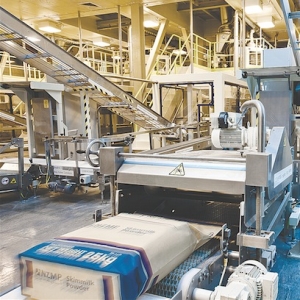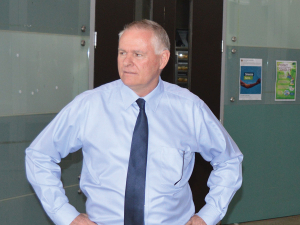Four months ago, we considered several months of downward movements in dairy commodity prices on international markets.
At that stage, the average GlobalDairyTrade (GDT) price was at US$3309/tonne – an average fall of 34% across all products from the February peak.
Since then, the GDT average has dropped a further 23%, reaching US$2561/t at the November 18 event.
Much has happened in the market since the start of August, the most dramatic and unexpected being the announcement by the Russian government of an embargo on food imports from the EU, US, Canada, Australia and Norway (in addition to Ukraine, banned in July).
The ban’s direct impacts on Australia are largely confined to denying several processors with Russian-approved plants a premium-paying butter market.
Indirectly, many feared that some of the 260,000 tonnes of cheese exported to Russia by the European Union each year would be dumped on world markets, including Japan and South East Asia.
Profitability in these markets has already been eroded in recent years by price competition from US exports, often subsidised under the Cooperatives Working Together (CWT) industry program.
It remains too soon to assess how well-founded such fears were, with the latest round of price negotiations in Japan still underway at the time of writing.
So far however, the worst fears have not been realised, and although cheese prices have adjusted in line with the broader market, the outlook seems to reflect less downside potential than a month ago, with some expecting values could remain supported around current levels in the near term.
The commodity most impacted by the Russian ban has been skim milk powder (SMP), which on GDT has lost 52% since February, including a 35% drop since August.
Much of the European milk that would have been destined for Russia in the form of cheese has been directed to SMP in recent months, boosting supply in a falling market. Other factors are at play too, however.
With whole milk powder (WMP) prices also depressed, New Zealand’s processors are also increasing SMP output, while recent corrections in the US domestic market are bringing American suppliers closer to export competitiveness.
Demand is reportedly healthy and sizeable volumes of product are changing hands, but in the words of some traders, there is ‘just too much product around’.
The reason so much SMP is being produced is to do with milk fat products, for which skim milk is a by-product. Butter, anhydrous milk fat (AMF) and cream cheese continue to perform reasonably well on export markets, and even better in the domestic markets of many major exporters (Australia included).
The total returns from channelling milk to SMP/milk fat production streams are at present greater than those from producing WMP.
Speculation that SMP pricing may reach public intervention levels increases its attractiveness to manufacturers, because of the effective price floor that intervention buying by the European Commission provides.
With little change to the fundamentals, it looks likely that prices will finish 2014 around current levels. The good news is that inevitably, the cycle will turn.
Though a substantial degree of downside risk remains (particularly for SMP), many products are likely to find increasing levels of support into 2015.
By then, pricing signals will likely be reaching the farmgate (and consumers) worldwide, and supply may become further restricted as southern hemisphere farmers contend with a potentially difficult summer.
• John Droppert is industry analyst with Dairy Australia.


















